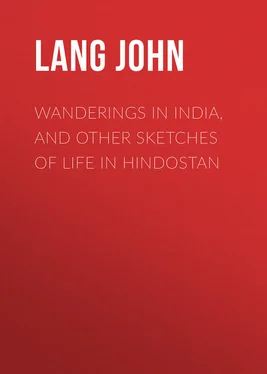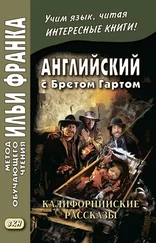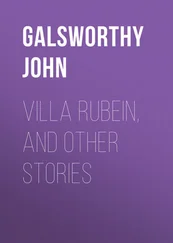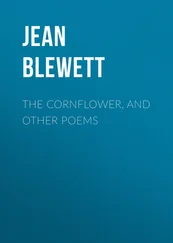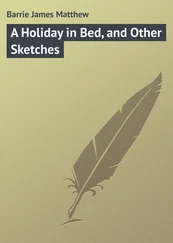John Lang - Wanderings in India, and Other Sketches of Life in Hindostan
Здесь есть возможность читать онлайн «John Lang - Wanderings in India, and Other Sketches of Life in Hindostan» — ознакомительный отрывок электронной книги совершенно бесплатно, а после прочтения отрывка купить полную версию. В некоторых случаях можно слушать аудио, скачать через торрент в формате fb2 и присутствует краткое содержание. Жанр: literature_19, foreign_antique, foreign_prose, Путешествия и география, на английском языке. Описание произведения, (предисловие) а так же отзывы посетителей доступны на портале библиотеки ЛибКат.
- Название:Wanderings in India, and Other Sketches of Life in Hindostan
- Автор:
- Жанр:
- Год:неизвестен
- ISBN:нет данных
- Рейтинг книги:3 / 5. Голосов: 1
-
Избранное:Добавить в избранное
- Отзывы:
-
Ваша оценка:
- 60
- 1
- 2
- 3
- 4
- 5
Wanderings in India, and Other Sketches of Life in Hindostan: краткое содержание, описание и аннотация
Предлагаем к чтению аннотацию, описание, краткое содержание или предисловие (зависит от того, что написал сам автор книги «Wanderings in India, and Other Sketches of Life in Hindostan»). Если вы не нашли необходимую информацию о книге — напишите в комментариях, мы постараемся отыскать её.
Wanderings in India, and Other Sketches of Life in Hindostan — читать онлайн ознакомительный отрывок
Ниже представлен текст книги, разбитый по страницам. Система сохранения места последней прочитанной страницы, позволяет с удобством читать онлайн бесплатно книгу «Wanderings in India, and Other Sketches of Life in Hindostan», без необходимости каждый раз заново искать на чём Вы остановились. Поставьте закладку, и сможете в любой момент перейти на страницу, на которой закончили чтение.
Интервал:
Закладка:
Fever became prevalent, and cholera. Several of the captains and senior lieutenants fell victims; and, in less than three years, Lieutenant Gay got his company (the regiment was now at Meerut), and retired from the army by the sale of his captain's commission. It was supposed that he was worth a great deal of money – a lac of rupees (ten thousand pounds) at the very least. Whither he went no one knew, and no one cared. One of the servants, whom he discharged previous to leaving the station of Meerut, said he believed that his master had gone either to Affghanistan or to Lahore.
Let us now return to Europe. A few years after Captain Gay had sold out of the army, his eldest brother, Lord Larkspeare, was killed while grouse-shooting, by the accidental discharge of his gun; his second brother, Augustus, a captain in the army, was lost in a vessel which was bringing him home from Canada; his third brother, George, died of small-pox three days after he had taken his father's second title. Of his son Francis's marriage, Lord Millflower had been informed, and also of the birth of the black child, the Honourable Ernest Augustus George Francis Frederick Gay. Colonel Role had deemed it his duty not to withhold these facts, albeit they were disagreeable to communicate to the noble earl. Lord Millflower begged of Colonel Role to institute an inquiry into the fate of his Francis, and the Colonel did so, but without success. No clue to his whereabout could be discovered, nor could any one say what had become of him. Under these circumstances it was taken for granted that he was dead. Another five years passed away, and the Earl of Millflower departed this life. He was, of course, succeeded in his titles and estates by his son Frederick.
Now let us return to Francis. He became a dealer in precious stones, and travelled over the whole of India, under the name of Mustapha Khan, visiting the various native courts. Every tour that he made occupied him three years. Constantly moving about in the sun had tanned his once fair face; and neither from his appearance – for he was dressed as a native – nor from his speech, could the natives themselves detect that he was an European. He gave out that his birthplace was Nepaul, where the natives are sometimes born with blue eyes. He bought and sold, and was apparently very happy in his occupation. His wife and son invariably accompanied him in his travels. He had never written to his family since his arrival in India, and had not received letters from any member thereof. India he loved, England he detested, and would not have taken up his father's title if it had been a dukedom. He never approached the abode of an European, and never saw a newspaper. He was not likely, therefore, to hear of the changes that had taken place at home. In the bazaar at Delhi Captain Gay had a small house, in which were deposited his effects, a few boxes filled with clothes, books, &c., his sword, and the uniform he used formerly to wear. These were under the care of a man-servant, a sweeper. The bulk of his worldly wealth he invariably carried about his person, as many natives of India do.
Ernest Gay was now twelve years of age. He was usually called by his parents Chandee, a word signifying silver. Chandee was clever and cunning, and had a wonderful talent for calculating numbers. In less than a minute, by counting on his fingers, he would tell you the interest due on such sums as three rupees, five annas, and seven pic, for twenty-one days, at forty-one three-fourth per cent. English he had never heard spoken; and as he had never been taught that language, he did not understand a single word of it. Nor could he read or write Hindoostanee, although he spoke it in all its purity and elegance.
There was about to take place a marriage in the family of the Rajah of Pulbecala. Mustapha Khan (Francis Gay) journeyed from Delhi to the Rajah's court, to exhibit his jewels. He had diamonds, rubies, and emeralds of great price, and some of these he hoped to dispose of to advantage. The Rajah, however, had already provided himself with these matters, and therefore confined his purchases to a large cat's-eye ring, for which he paid Mustapha fifty gold mohurs (eighty pounds). On his way back to Delhi, at a place called Kunda Ka Serai, a band of robbers attacked the jewel-merchant. They hacked him to pieces with their swords, but they spared his wife and the boy. The whole of their treasures were stolen; even the rings from Ellen's ears and fingers, and the gold bangles which Chandee wore upon his arms.
When her senses were restored to her, Ellen, with the assistance of her son, dug a grave in the sand, and buried her butchered husband. The bearers who carried the palanquins ran away as soon as the robbers attacked the party, and were no more seen. Most probably they had some small share of the booty, the value of which the Sirdar estimated at four lacs of rupees (forty thousand pounds). Whatever had been Francis Gay's vices when a youth – and they were great enough in all conscience – he had been a kind and affectionate husband to Ellen, and she most bitterly deplored his loss; violent was the grief of Chandee, who was devotedly fond of his father.
They heaped stones over the grave of the dead man, to mark the spot where he was laid, and, after their own fashion, offered up prayers for the repose of his soul.
The murder having been committed within the dominions of an independent prince, Ellen knew that her wrongs were not likely to be redressed if she complained; and that the British Government would not interfere, unless she made known that her husband was an Englishman. This she felt would be contrary to the wishes of the dead. Hopeless and helpless, she and her son made the best of their way to Delhi, where, having collected a few debts that were due to them, they established a small shop for the sale of native sweetmeats. They carried on this business for three or four years, when Chandee grew weary of it, and set up in the world as a box-waller, or pedler. His box contained pens, ink, and paper, needles, pins, knives, scissors, soap, eau de Cologne, tooth-brushes, matches, and so forth. His customers were the European officers, who gave him the name of Black and Blue, from the colour of his eyes and skin. A box-waller is always a great cheat – as great a rascal as was Autolycus himself; Black and Blue, if the truth must be told, was not an exception to the rule or race. But no one could grudge him his profits when the cuffs and kicks which were playfully administered to him by the young lieutenants and ensigns are taken into consideration. Black and Blue always took the rough usage of his customers in excellent part; and would generally make some such appeal as this (he had picked up a little English by this time): "Ah, well! I know! You rich white gentlemans – I poor black devil. I pray all day all night that ensign be made leeft'nunt; leeft'nunt, capitaine; capitaine, capitain-meejor; meejor, kunnull; kunnull, meejor-jinneral; and then God bless your father and mother, and brother and sister; and then, for all that pray, I get so much kick and so many bad words. God make us all – black and white; all equal right up above. You want blacking? Here you are. Very good blacking – quite genuine; only one rupee a bottle. I suppose you not got ready money! Very well, I wait till pay-day come. I very poor man. You my master. Khuda Lord Kuren." The meaning of this expression, with which most natives wind up a speech to an European, signifies, May God make you a lord!
When Black and Blue was no more than five years old, he was playing one morning in his father's compound (enclosure – the land around the bungalow), when a pariah dog rushed in and mangled him very severely. The dog was rabid. Captain Gay called in the doctor of a native cavalry regiment, who lived in the next bungalow, who cauterized the wounds. The child was bitten on the arms, legs, and chest, and was under the doctor's treatment for upwards of five weeks. On several occasions when he visited his patient, the doctor saw and conversed with Ellen, who was naturally very anxious touching the child's safety. This doctor was one of the number who witnessed the marriage of Ensign Gay at Cawnpore, and was also present when his offspring was christened.
Читать дальшеИнтервал:
Закладка:
Похожие книги на «Wanderings in India, and Other Sketches of Life in Hindostan»
Представляем Вашему вниманию похожие книги на «Wanderings in India, and Other Sketches of Life in Hindostan» списком для выбора. Мы отобрали схожую по названию и смыслу литературу в надежде предоставить читателям больше вариантов отыскать новые, интересные, ещё непрочитанные произведения.
Обсуждение, отзывы о книге «Wanderings in India, and Other Sketches of Life in Hindostan» и просто собственные мнения читателей. Оставьте ваши комментарии, напишите, что Вы думаете о произведении, его смысле или главных героях. Укажите что конкретно понравилось, а что нет, и почему Вы так считаете.
